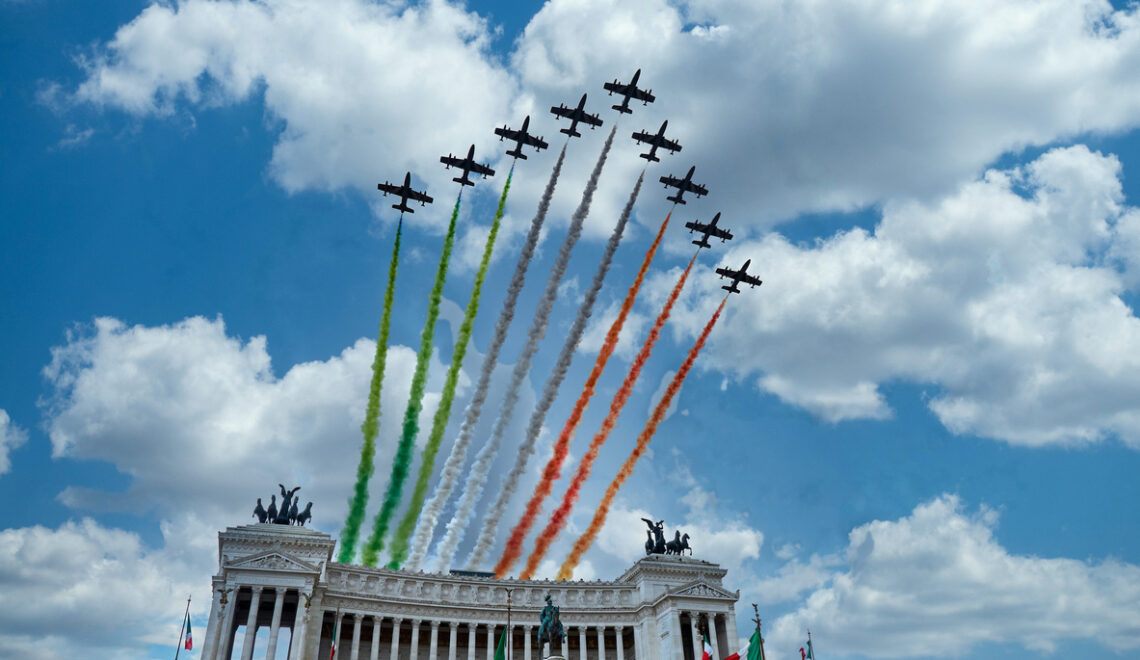
Explore Italy with confidence! Get essential travel tips for first-timers, safety advice, money-saving hints, and must-knows before your trip. Perfect guide for all travelers.
Whether it’s your first visit or you’re a seasoned traveler returning for more, Italy never ceases to amaze. To ensure your journey is as smooth and enjoyable as possible, we’ve put together a comprehensive guide filled with travel tips to Italy, tailored for foreigners travelers. From safety tips to money-saving advice, here’s everything you need to know before embarking on your Italian adventure.
- Before You Go: Tips for Traveling to Italy
- Safety Tips for Traveling to Italy
- Money Tips: Navigating Financials in Italy
- Getting Around: Italy Travel Suggestions
- Cultural Etiquette: Tips When Traveling to Italy
- Exploring Like a Local: Italy Vacation Tips
- For the First-Timer: Essential Italy Travel Tips and Advice
Before You Go: Tips for Traveling to Italy
Italy’s rich history, art and culture mean there’s a lot to see and do. Before you travel, make a list of the places you want to visit, considering Italy tours or packages that might suit your interests and budget. Whether it’s your first visit to Italy or your tenth, planning ahead will help you make the most of your trip.
1. Choose Your Travel Dates and Duration:
Italy’s diverse regions offer unique experiences throughout the year. Consider your preferences to choose the best time to visit Italy:
- Spring (March-May): Pleasant weather, fewer crowds, blooming landscapes.
- Summer (June-August): Hot and sunny, ideal for beach destinations, peak season crowds.
- Fall (September-November): Comfortable temperatures, fewer crowds, harvest season.
- Winter (December-February): Mild weather in the southern regions, perfect for exploring cities without crowds.
2. Book Flights and Accommodation:
- Flights: Consider flying into major hubs like Rome, Milan or Venice, depending on your itinerary. Look for deals and book in advance, especially during peak season.
- Accommodation: Choose hotels, apartments or Airbnbs based on your budget, desired location and travel style. Research neighborhoods and read reviews before booking.
3. Obtain the Necessary Documentation:
- Passport: Ensure your passport is valid for at least six months beyond your travel dates.
- Visa: Check if you need a visa for Italy based on your nationality and length of stay.
- Travel Insurance: Consider purchasing travel insurance for unexpected situations like medical emergencies or trip cancellations.
To learn more about the requirements for traveling to Italy, read everything you need to know about travel documents.
4. Research and Plan Your Itinerary:
- Decide on your must-see destinations and activities: Research popular attractions, hidden gems and regional experiences.
- Consider transportation options: Italy boasts a well-connected train network, making it easy to travel between major cities. Regional buses and car rentals are also options.
- Purchase tickets in advance: Popular attractions like the Colosseum or Vatican Museums often sell out quickly. Book online or through trusted vendors.
5. Packing Essentials
- Comfortable shoes: Be prepared for extensive walking on cobblestone streets.
- Lightweight clothing: Pack layers for varying weather conditions, especially if traveling across different regions.
- Travel adapter: Italy uses two-pronged plugs, so pack a compatible adapter for your electronics.
- Reusable water bottle: Stay hydrated and minimize plastic waste by carrying a reusable water bottle.
- Sunscreen and hat: Protect yourself from the sun, especially during summer months.

6. Learn Basic Italian Phrases:
While English is spoken in tourist areas, attempting basic Italian phrases like:
- “Buongiorno” (good morning)
- “Grazie” (thank you)
- “Scusi” (excuse me) goes a long way in showing respect and enhancing your experience
- “Dove è il bagno?” (Where is the bathroom?) can be very useful
- “Buon appetito” (Enjoy your meal) before eating
Safety Tips for Traveling to Italy
Italy is generally safe for tourists, but like any popular destination, it’s wise to take certain precautions:
- Keep your belongings secure and be mindful of pickpockets, especially in crowded places.
- Familiarize yourself with local laws and customs to avoid any unintentional offenses or complications.
- For emergencies, know that the number to dial in Italy is 112.
Money Tips: Navigating Financials in Italy
Italy uses the Euro, and while credit cards are widely accepted, carrying some cash is advisable for small purchases. Inform your bank of your travel plans to avoid any issues with your cards while abroad. Also, be mindful of exchange rates and try to exchange money at reputable places.
Currency and Payments:
- The official currency is the Euro (EUR).
- Exchange some currency before your trip or use ATMs upon arrival.
- Credit cards are widely accepted, but carrying cash is recommended for smaller purchases and rural areas.
- Bring a Visa or Mastercard – other card types are not as commonly accepted.
- Be aware of potential scam artists and protect your belongings, especially in crowded areas.

Getting Around: Italy Travel Suggestions
Traveling within Italy is a delight thanks to its efficient public transportation system. Italo Treno offers a comfortable and convenient way to explore the country’s major cities and picturesque towns. For the best experience:
- Book your train tickets in advance to secure the best rates.
- Consider a rail pass (book of tickets) if you plan to travel extensively across the country.
Navigating Transportation:
- Trains: The efficient train network connects major cities and regions. Purchase tickets online or at stations.
- Buses: Buses offer a budget-friendly option for shorter distances and reaching smaller towns. On the Italo Train site, you can also buy bus tickets that will take you directly from the station to your destination.
- Car rentals: Consider renting a car for exploring remote areas or if traveling with a group. Be familiar with Italian traffic regulations and driving etiquette.
Cultural Etiquette: Tips When Traveling to Italy
Italians are known for their warm hospitality, but observing local etiquette will enrich your interactions:
- Dress modestly when visiting churches and religious sites.
- Tipping is appreciated but not as customary as in the U.S. A service charge is often included in restaurant bills, but leaving a small extra amount for good service is welcomed.
- Be mindful of noise levels and respect local customs.
- Stay vigilant in crowded areas and watch your belongings.
- Learn basic gestures and greetings in Italian.
Exploring Like a Local: Italy Vacation Tips
To truly experience Italy, venture beyond the tourist hotspots. Small towns and rural areas offer a glimpse into the country’s soul, showcasing its traditions, art and way of life. Engage with locals, visit local markets and take the time to enjoy the slower pace of Italian life.
Adapting to the Pace:
-
- Things may move slower in Italy than you’re accustomed to. Embrace the relaxed atmosphere and enjoy the slower pace of life.
- Be prepared for potential closures and siestas, especially during midday hours.
- Many public spaces offer free Wi-Fi, but download essential apps and information beforehand.
For the First-Timer: Essential Italy Travel Tips and Advice
If this is your first visit to Italy, prioritize seeing its iconic landmarks like the Colosseum in Rome, the canals of Venice and the Tuscan countryside. However, be flexible and open to unexpected discoveries that often make for the most memorable experiences.



